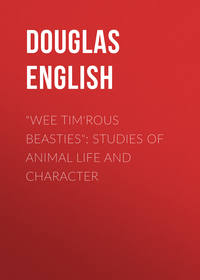Sadece Litres'te okuyun
Kitap dosya olarak indirilemez ancak uygulamamız üzerinden veya online olarak web sitemizden okunabilir.
Kitabı oku: «"Wee Tim'rous Beasties": Studies of Animal life and Character», sayfa 5
Bir şeyler ters gitti, lütfen daha sonra tekrar deneyin
Türler ve etiketler
Yaş sınırı:
12+Litres'teki yayın tarihi:
04 ağustos 2018Hacim:
189 s. 133 illüstrasyonTelif hakkı:
Public Domain